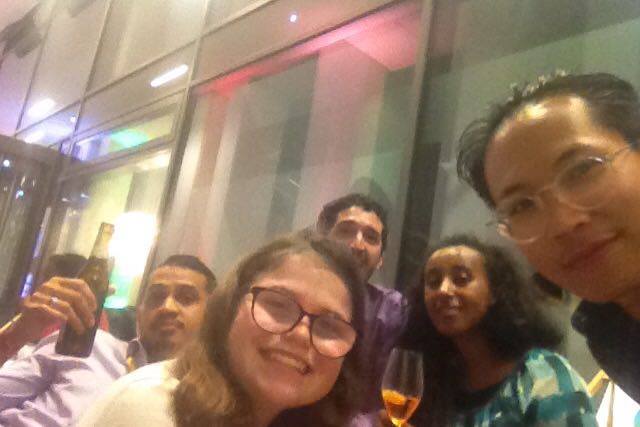★★☆☆☆
I started to get suspicious shortly before reading. I was reading (and hating) The Man Who Mistook His Wife For A Hat, and Other Clinical Tales by Oliver Sacks, and that's when I realised that "does for botany what Oliver Sacks did for neurology", which I think is on the cover, might not be such a good sign.
Nevertheless, I began reading. It was not an auspicious start, since she started by talking about her early childhood, when her dad would let her play around in his lab and she would, I don't know, play around in the winter snow. She made Minnesota sound like an Arctic hellscape, which is actually true apparently, so at least I learned something -- according to Wikipedia (best source ever, I know), the ten coldest counties in the US are all in Minnesota, and a place in Minnesota goes below -18 degrees Celsius an average of 71 days per year.
So I guess the weather facts were interesting, but unfortunately (a) I really really don't like stories that start by looking back on the author's childhood (b) it just made it seem like she got a hand up into science from her dad, which wasn't particularly endearing, although that might just be me and my complete lack of relatives in relevant fields.
She then went chronologically through her life, pretty much, with occasional interludes for very vague botanical information.
That's the crux of my problem with this book, really, that and the fact that it didn't grip me or make me want to keep reading despite my expectation of loving it. The crux is that there was so little science in it. I did quite a lot of research on the book before I bought it online, and it all seemed to say that the book interwove science and memoir, with chapters on each alternating. That is ... not true.
It is true that the memoir chapters alternated with chapters involving trees. The issue is that the trees were being used as a vehicle for her memoir. She'd spend a chapter waxing lyrical about how hard trees must try to survive, and segue into how hard she had to try. She'd talk about how trees reproduce (without using any actual scientific terminology or mechanisms or studies or, well, specifics) and segue into her own experience of giving birth. For someone who talks so much about how much she loves botany, she wrote almost none of it. There were only about three actual studies cited, and those were very interesting -- I just wish they'd been half the book like I was expecting, and I could've actually learned a significant amount about the science of plants. She led in well, made it sound so interesting, how plants give the whole biological world its energy, but then didn't deliver the goods on how that happens. The intro tells the reader that if they ask questions of a leaf, they're being a scientist, and invites them on a journey of science with her, and given that she covers little actual science, that seems awfully patronizing.
Given that she seems to love botany so much, maybe the publisher insisted she not include anything technical so as to boost sales?
I also didn't love her much-praised story of her friendship with Bill, who she seems to have kept as a homeless pet/colleague for years. There's stuff about him sleeping in a van frequently, about him leaving his hair in a tree, about all this hardship, about them pulling all-nighters at the lab most of the week, all this horrible stuff that just seemed a bit ... ridiculous. Like, nobody was making you do that. I'm a workaholic myself (and it's not really a good thing after a point), but that just seemed like being gluttons for punishment. She also talks about crashing two cars and not caring (aged, like, 40, not 15), one even rolling over a bank. Triumphing against adversity is super cool, but it's much less cool when you bring it on yourself.
She talks briefly about her experience with manic depressive disorder, which was quite interesting, but doesn't spend much time with it.
I could feel the stress permeating the book as she talked about the constant struggle for funding in science. It definitely was not encouraging. Common theme with Henry Marsh talking about the NHS in Do No Harm, funny enough.
I did enjoy some parts. The aforementioned actual science bits were cool, as were some of the procedural "how I do the science bits". I enjoyed the chapter she spent describing her undergraduate job working in a hospital mixing drugs. The writing is pretty.
Overall, I found there was too much drama and grandiosity and not enough science for me. I know I might not be the typical reader of pop science books since I'm actually studying science and I can't expect authors to cater to my exact demographic, but still. She's apparently an extremely accomplished scientist with many prestigious prizes -- why not talk about that stuff, instead of just struggles? I'm sad not to have liked this book, and wish I'd known it was more a memoir than anything else before I bought it.










